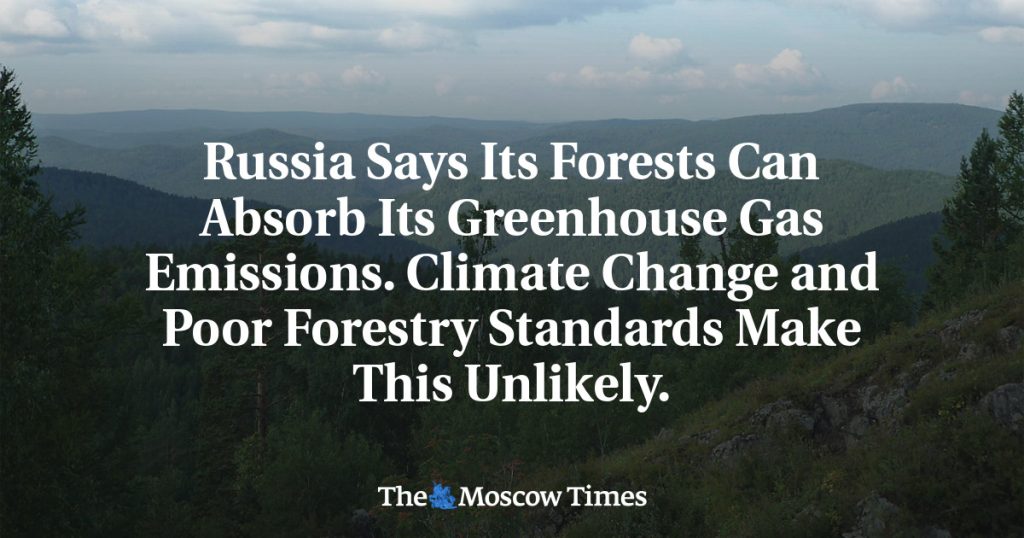As the climate crisis escalates, Russia is banking on its expansive forests to offset its carbon emissions and potentially become a global leader in carbon absorption. However, experts warn that due to substandard conservation practices, ineffective forestry methods, and the impacts of climate change, Russia’s forests may end up as a carbon source rather than a sink in the next decade. Approximately a quarter of all logging in Russia targets its untouched old-growth forests, which act as a major carbon reservoir.
With the planet warming at an unprecedented rate, carbon capture by ecosystems is becoming a crucial climate solution. At the 2021 UN climate conference, President Vladimir Putin stressed Russia’s commitment to preserving forests through reforestation and combatting illegal logging and wildfires. Despite these efforts, experts are skeptical that current measures will be sufficient to protect Russia’s forests in the long term.
Research indicates that Russia’s greenhouse gas emissions may exceed what its ecosystems can absorb, leading to concerns that the country’s forests could become a carbon source by 2050. Factors such as wildfires and droughts are diminishing the carbon-sink status of Siberia’s forests. Additionally, the absorption capacity of Russia’s forests has declined by nearly 20% since 2009, further jeopardizing their ability to offset emissions.
The increasing frequency and severity of wildfires, along with other climate-induced issues like pest outbreaks and windfalls, pose significant threats to Russia’s forests. Forest management practices, including monoculture plantings of coniferous trees, may not be suitable for today’s changing climate. With clear-cutting being the main approach to timber harvesting in Russia, reforestation efforts are often ineffective, leading to devastated wastelands that do not support long-term carbon absorption.
Researchers are exploring alternative methods to enhance carbon absorption, such as planting industrial hemp, which has shown to absorb carbon dioxide more effectively than conifers. The establishment of “carbon polygons” across Russia aims to study the absorption capacities of various plants to potentially aid the country in achieving carbon neutrality. While experts question hemp’s reliability for carbon storage, they acknowledge the importance of such initiatives in expanding knowledge of carbon capture potentials.
Russia plans to more than double carbon absorption by ecosystems by 2050, but experts believe this goal is unrealistic without significant additional actions. Key measures to improve forestry management include banning logging in virgin forests, enhancing firefighting efforts, and developing forestry on abandoned agricultural lands. Without proper management, Russia’s forests face an uncertain future, with the potential for them to become a net carbon source. The significance of preserving these natural treasures is crucial in the fight against climate change.


